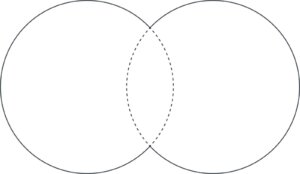Recently on Trending with Timmerie, Timmerie took a look at Jordan Peterson’s three principles for considering a potential spouse.
The three principles, in their simplest terms, are honesty, the ability to negotiate, and compatibility. While they may sound like obvious fundamentals, these are the basis for everything else in a relationship and they often go overlooked.
- Honesty. Especially in today’s culture, lies and white lies have lost their reputation as harmful. While white lies might not be overtly harmful or deceptive, if we tell them enough, they lead to worse things, like bigger lies and the justification of sin. Sometimes, if we lie often enough, we begin to trick ourselves into believing the lie.
Once we’ve become capable of lying to ourselves, we start losing track of who we are and what we stand for. And if we lose the sense of who we are and what we stand for, we can’t possibly hope to find somebody who is compatible with us, our morals, our standards, or our habits.
Jordan Peterson suggested that single people looking for a significant other ask themselves a question: Are my actions leading to the foundation and growth of trust? Or are they leading to a depletion of trust? Peterson said that at the end of the day, lying is a choice. We will make mistakes in literally every aspect of our lives, but we can choose whether to be honest about them or not.
“Let your ‘Yes’ mean ‘Yes,’ and your ‘No’ mean ‘No.’ Anything more is from the evil one.” (Matthew 5:37)
- The Ability to Negotiate. There are going to be differences between you and your significant other. There’s no question. You may have similar interests or similar habits, but part of the beauty in God’s creation of us is that we are all different individuals, no one exactly like any other. Therefore, those differences will lead to differing opinions on different matters. Your ability to negotiate will prove to be a key factor in the way these situations play out.
Peterson says that not only will this ability help you avoid constant disagreement, but it’s an affirmation that you recognize the beauty in the person across from you, including their differences. It shows that both members of a couple have strengths and weaknesses and that working together, they can complement each other and reach reasonable conclusions.
- Compatibility. Do opposites attract? Or do birds of a feather flock together? According to Jordan Peterson, it’s not so straightforward. He says you don’t want too much mismatch between you and your significant other’s personalities, but you also don’t want to become chameleons and simply become each other (that goes back to the first principle of honesty). Rather, the personalities of a couple should look something like a Venn diagram: two circles next to each other with some overlap between them.

That’s why by the time you begin dating and considering relationships or marriage, you want to have a pretty solid idea of who you are and what you’re like. What is your personality like? What type of people do you normally get along with? What are your major strengths and faults? What are your quirks? It’s paramount that you’re able to take an objective look in the mirror and recognize who you are. Your opinion of yourself should not surpass reality, but you also can’t sell yourself short.
“For by the grace given to me I tell everyone among you not to think of himself more highly than one ought to think, but to think soberly, each according to the measure of faith that God has apportioned.
For as in one body we have many parts, and all the parts do not have the same function, so we, though many, are one body in Christ and individually parts of one another.
Since we have gifts that differ according to the grace given to us, let us exercise them…” (Romans 12:6)
Tune in to Trending with Timmerie weekdays at 6pm CT

